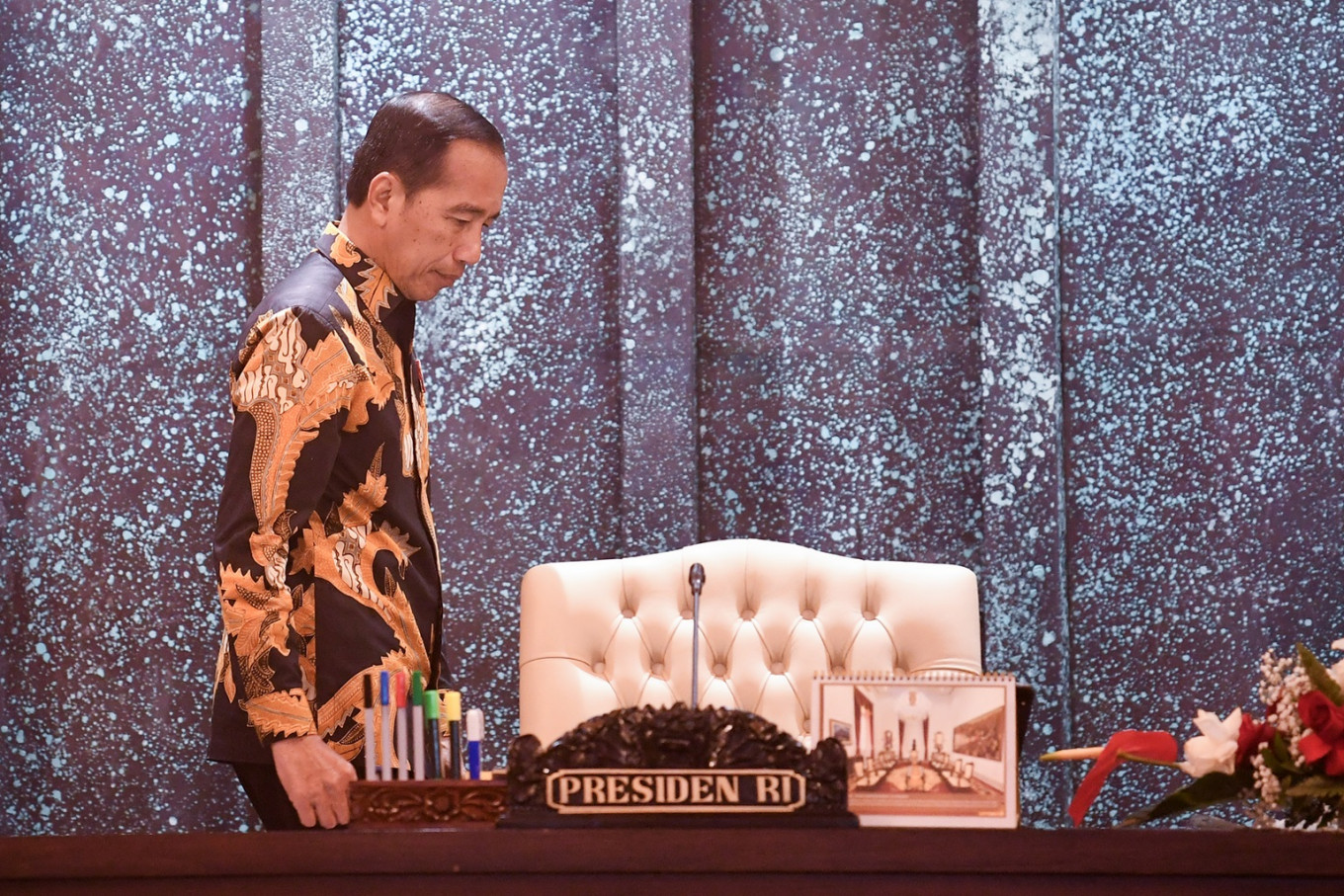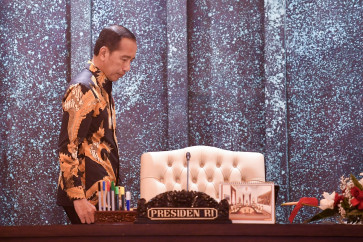Popular Reads
Top Results
Can't find what you're looking for?
View all search resultsPopular Reads
Top Results
Can't find what you're looking for?
View all search resultsNusantara: Jokowi’s political legacy and its future outlook
Given the basic function of a capital as a symbol of state power and national identity, there is a need to limit the involvement of the private sector in the development of the Central Government District.
Change text size
Gift Premium Articles
to Anyone
P
resident Joko “Jokowi” Widodo’s decision to spend most of his final days in office at the Garuda Palace in the future capital of Nusantara is significant. It represents the last political ritual he can perform to ensure the longevity of the project.
From the outset, the construction of Nusantara was primarily intended to establish his personal legacy and, to a lesser extent, the collective legacy of his ruling coalition. This legacy, however, will have a profound impact on Nusantara and its people, and it is important to critically assess these implications.
The construction of Nusantara is closely linked to his political image as an entrepreneurial leader who continuously embodies non-populist and pro-poor principles, attributes he actively pursued even before becoming president. Nusantara is intricately connected to Jokowi’s policy strategies, which have focused on infrastructure megaprojects, settlement relocations and the establishment of regional growth centers.
President Jokowi’s vision for Nusantara extends far beyond his presidency. He envisions the new capital city as a lasting monument to his leadership, a model of modernization for the global community and a symbol of prosperity and greatness for the nation. By transforming the way futuristic cities are conceived and constructed, he aims to establish a legacy through which he might wish to be remembered as a state leader who successfully steered the nation to its glory.
Planning for political legacies may involve the use of authoritarian methods for various reasons. Political legacies often exhibit an elitist character, primarily intended to satisfy the aspirations of the leaders rather than to cater to the interests of their fellow citizens and meet the demands of the people.
Additionally, the extended duration of a legacy sometimes leads to audience mismatch, whereby the individuals who will reap the benefits of the legacy outcome may no longer be the same as those who were affected by the legacy antecedent. This potential mismatch is a significant consideration in evaluating the long-term impact of Jokowi’s legacy.
Because Jokowi prioritized swift actions, the process of establishing his political legacy was marked by pragmatic approaches to the building of formal, informal and cultural institutions.



















